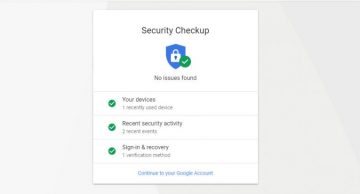Can You Trust Mobile Anti-Phishing Apps?

Phishing attacks can cause a lot of trouble for both companies and regular users. Cybersecurity experts say that many data breaches, attacks carried out to steal targeted organizations’ and their customers’ information, start with phishing. It is only natural that with such attacks becoming more often there is an increase in various cybersecurity products, such as anti-phishing apps. Some of you may wonder how well such software could guard your mobile device against phishing attacks. The truth is there is no tool that can guarantee complete protection against any cyber threats. Also, not all mobile apps can be trusted, as specialists notice a rise in rogue mobile programs. Further, we will discuss anti-phishing apps, as well as talk about how to avoid unreliable programs and protect yourself from phishing.
Table of Contents
How effective are anti-phishing apps?
As explained earlier, there are no tools that can guarantee complete protection. As for the effectiveness of different tools, it could vary. We learned that some anti-phishing apps designed for mobile devices are not as effective as their Desktop versions. For example, an anti-phishing app called Netcraft Phishing Protection works both on Desktop computers and on mobile devices, but it seems the mobile version cannot provide the same level of protection against phishing attacks. What’s more, users should know it detects phishing content by checking a database of phishing websites. The downside of such a working manner is that the app might not recognize malicious sites if they are not listed in the database. A lot of similar anti-phishing apps function this way. Therefore, if you are thinking about employing one of them, keep in mind, it could be useless against new and unreported phishing scams.
Moreover, not so long ago we learned about a new anti-phishing app that is not available yet but already looks promising. It is called MetaCert , and it should identify phishing content by checking two databases: a database of known phishing email addresses and a collection of known addresses for services scammers usually spoof. The bad news is that for the tool to recognize phishing emails, the user has to permit it to handle his messages. No doubt, users concerned about their privacy might not like this idea. The creators claim the emails will not be stored anywhere, but some of the potential consumers may need more guarantees, and hopefully, the developers will be able to provide them.
Not all mobile apps can be trusted
As you probably realize it yourself, the fact that the app claims to be a cybersecurity tool does not automatically mean it can be trusted. The Internet is full of various fake programs, and we doubt that anti-phishing tools could be an exception. Thus, users searching for anti-phishing apps or other security tools should be extra cautious. Otherwise, they might expose their devices to various threats or end up wasting their money for useless tools that only pretend to be guarding the device. As we said earlier, rogue or fraudulent apps are on the rise, so picking a trustworthy tool may require some effort.
Rogue software can mimic legit apps’ logos and their functionality. Meaning if you do not want to be tricked into installing such apps or paying for their license, you must know how to recognize them. Reading the app’s description is necessary, but it is not enough to determine whether the chosen tool is reliable or not.
Here is a list of things you should do before installing new apps on your mobile device to avoid potentially dangerous programs:
- Check who created the program. By researching the company’s name you can learn whether the developer is trustworthy or not. It might also help to read about the company’s other tools if there are any.
- Download apps only from legitimate websites and stores, for example, Google Play. It is true, even legit sources could unknowingly distribute potential threats once in a while, but if you employ all of our listed tips, you should be able to avoid them.
- Read both user and expert reviews that can be found on legitimate sites distributing mobile apps and websites dedicated to reviewing software. Of course, you should not trust user comments blindly as they could be fake. It is not that difficult to recognize them since they often sound overly positive and exaggerated.
- Take a look at the permissions the app requires. Always think about whether the chosen program’s requests make sense, especially if it asks for permission to access your contacts list, camera, messages, etc.
How to protect your mobile device without an anti-phishing app?
The key is to be prepared for every scenario and never let your guard down whenever you are dealing with suspicious emails, websites, or other content that could be used for phishing. Naturally, to be ready to defend your device from phishing attacks you should learn the ways they could be carried out.
One of the most popular ways is sending fictitious emails from email addresses that appear to represent reputable organizations. Phishing emails can look incredibly realistic, but it does not mean it is impossible to recognize them. Apparently, many of them use the same or similar subject lines that we recommend memorizing or having somewhere nearby so you could check them at any time. There are also other ways to recognize phishing emails and most of them are explained in the Google quiz.
Next, we have phishing websites to which you could get redirected while interacting with suspicious pop-ups, links received with phishing emails, and so on. The problem with such websites is it is difficult to detect and block them. First of all, many of them work only for a short time and tons of new phishing sites are being created each month. Also, according to the 4th quarter Phishing Activity Trends Report presented by APWG, there is an increase in cases when the user gets redirected somewhere else before being led to phishing websites to hide phishing URLs from detection. Thus, you should always pay attention to where you are being redirected. If it is supposed to be a legit site that you often visit, carefully inspect the URL address and look for any details that could suggest the site is fake, for example, a slightly different design, odd buttons/links, or lack of authentic certification. To learn more about fake phishing sites and how to identify them, you should continue reading here.
All in all, anti-phishing apps are more or less the same as all other tools, in a way that you have to research them too if you do not want to end up installing useless or rogue software. Besides, such apps might be unable to protect you from getting scammed all the time, and sometimes you have to depend on your intuition and skills.








